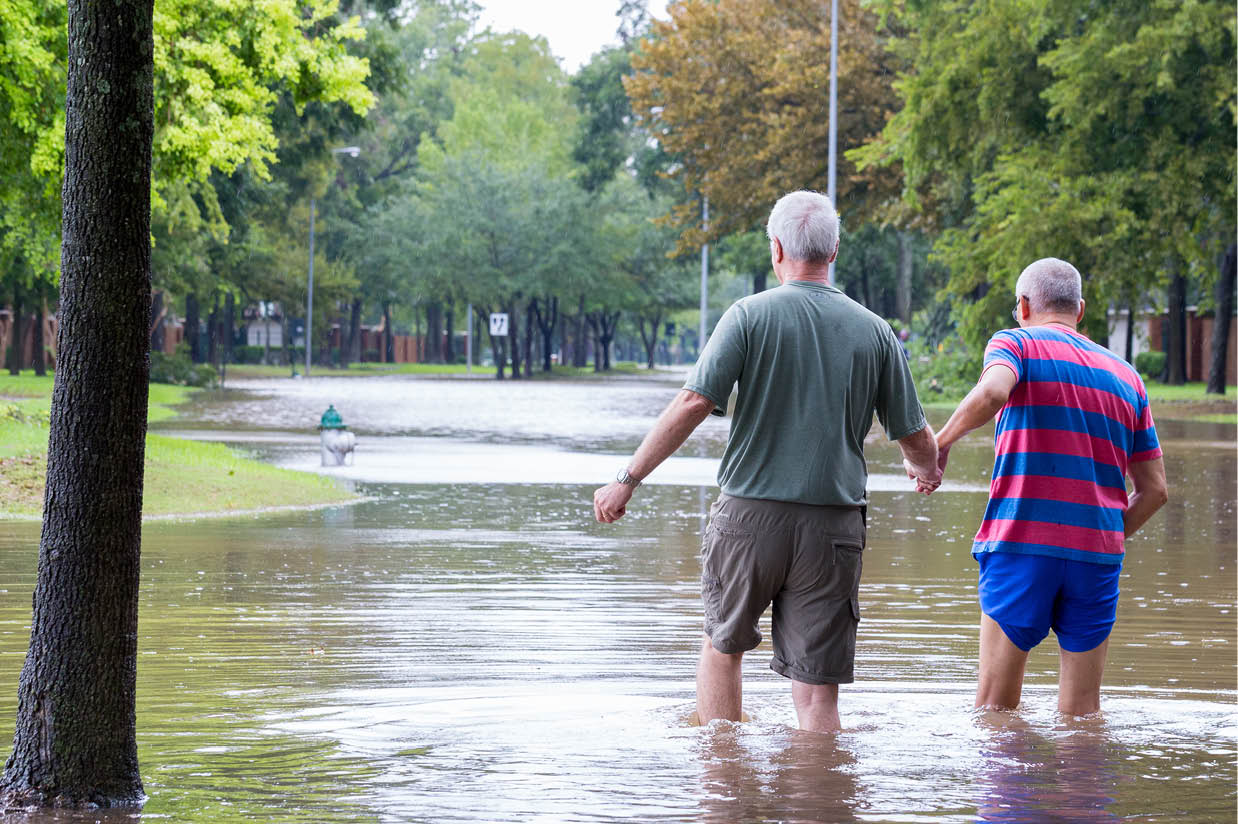
By Natalie K. Gould
After a disaster like Hurricane Harvey, thoughts turn toward rebuilding homes, infrastructure, offices, and parks. But what can easily get overlooked is caring for the mental health of those affected. Disasters invoke deep emotional distress even after the dust has settled. Mental health concerns may not manifest immediately after the incident, but can take up to months to fully develop. It’s important for family, friends, neighbors and volunteers to recognize the symptoms and ensure victims of disaster get the help they need.
Coping with a disaster can be similar to coping with the loss of a loved one—it takes time for things to start feeling “normal” again. The most important thing to remember is that you are not alone with your confused and frustrating feelings after suffering a disaster. In fact, your next door neighbor may be feeling the very same way. Talking about your distress and mental health concerns with those you trust is the first step in getting the comfort you need during this devastating time.
The next step is being patient with yourself and recognizing that you’re not going to feel like yourself overnight. Rebuilding your home and your mental wellbeing is a journey, not a race. Be kind to yourself and to others, as it’s likely they are suffering alongside you. Find time in your hectic day to focus on breathing and grounding yourself. Many find meditation to be a useful practice. Try an app like Calm as an introduction to meditation. You can do a session almost anywhere and at any time of day. Remember to talk to your family about what you’re experiencing so they can be aware that you may not be acting like your old self for awhile.
If you have children, check in with them to see how they’re coping with the experience. Children don’t always express their feelings in the same way that adults do. They may act out at school or with friends. Giving them an outlet to express their anger, sadness and frustration will help prevent some potentially harmful interactions outside the home.
Take care of yourself and others if you’re able. Taking care of yourself includes eating properly, drinking enough water, getting plenty of sleep, and exercising if you feel able. Avoid excessive drinking. Drinking can exacerbate sadness and depression, so it is not recommended to drink to help ease the pain. Instead, try to do a healthy activity like go for a walk, go to bed early, take a bath, watch a movie you enjoy or any other activity that brings you joy. Creating joy and moments of happiness are key to restoring your mental health.
Taking care of others is a practice that can improve our outlook and overall satisfaction. It helps create a focus outside ourselves. It can be as simple as baking a tray of muffins for a friend or volunteering hours where they are needed. Whatever you feel up to is the right activity to do. If your home survived the disaster, go through drawers and closets to put together donations for your community. Look through your pantry for items that can be donated to the food bank. Small actions make a bigger difference than you think. If you’re not up to it, don’t put pressure on yourself or make yourself feel badly. Each day is new, so one day you might feel ready to help and the next you might need to focus on yourself.
Services like the Disaster Distress Helpline (DDH) are available 24/7 for crisis counseling for those suffering emotional distress. Call 1-800-985-5990 or text TalkWithUs to 66746 to reach a trained disaster counselor immediately.
How to help a loved one who is suffering emotional distress after a disaster:
Take note of their attitude and overall appearance. Sit down with your loved one and ask how they’re coping with the disaster. Asking specific questions can be more effective than simply asking, “What’s wrong?”
Listen. Allowing your loved one to simply speak uninterrupted about what’s on their heart and mind can be the greatest gift. Make sure your loved ones know that your ears are open for whenever they want to talk. You don’t need to find a solution, you just need to be available to listen and for
a hug.
Make sure their basic needs are met. Open your home, if you’re able, to your displaced loved ones. Other ideas include cooking hot meals, helping with laundry, stocking the pantry, offering to clean the house or sending a housekeeper, and watching the kids so the parents can have a few hours to themselves.
Offer resources for professional help. Be aware of the many resources available those who are suffering emotional distress after a disaster. The DDH is an on-call counseling hotline available 24/7. Churches have counselors on staff ready to speak to anyone who walks through their door. Additionally, many professional counselors are trained specifically for disaster relief. Have these resources available for your loved ones for when they ask or if they’re displaying signs of alarming emotional distress.










